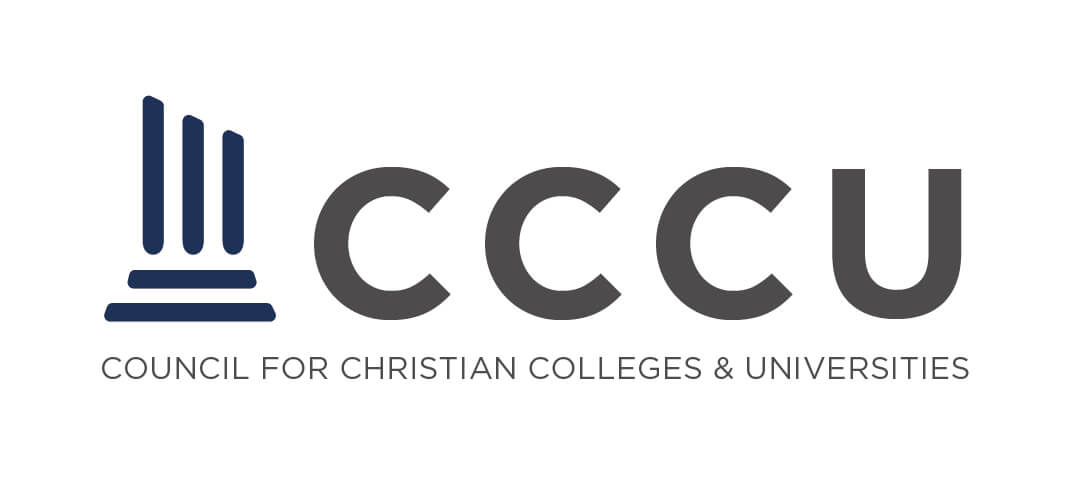One this page: Eligibility | Applications | Conditions | Selection Committee
Redeemer’s EPI Award is intended to recognize and foster emerging talent—those working in the Christian academy who excel in both academic and public spheres and whose work impacts the common good. This $5,000 (CAD) award is intended to encourage the development of first-rate public intellectuals in the Christian academy.
This prestigious award is sponsored in part by Cardus, the Acton Institute, the Center for Public Justice, the Henry Institute, the Council for Christian Colleges and Universities (CCCU), and The Richard John Mouw Institute at Fuller Theological Seminary. The annual award is intended to promote and encourage emerging academics working at Christian colleges and universities, who speak out of their Christian perspective to make substantive, credible contributions to big public questions.
In 2023, the Award Committee selected Dr. Fellipe do Vale, assistant professor of biblical and systematic theology at Trinity Evangelical Divinity School as the winner of the 2023 Emerging Public Intellectual (EPI) award. He spoke on “Finding Our Identities at the End of the World” at the annual The World and Our Calling Lectures.
2024 Deadlines
| Nominations due: | May 31, 2024 |
| Applications due: | June 30, 2024 |
| Announcement: | October 2024 |
Nominations
Anyone may nominate qualified individuals for the Emerging Public Intellectual Award by completing the nomination form below by May 31, 2024. Scholars nominated for the Emerging Public Intellectual Award will be contacted via email and asked to submit an application.
Eligibility
Eligible nominees must
- generally, be under 40 years old as of December 31, 2024 (see below);
- hold a doctorate or equivalent terminal degree from an accredited domestic or international program; and
- hold full-time employment in an academic post at an accredited Canadian or American institution of Christian higher education.
The work of the award recipient must meet the following criteria:
- Christian: demonstrably and communicably integrating the orthodox, Protestant Christian tradition with their fields of research, in ways that may not necessarily be explicit, but are nonetheless clear to the committee and their communities and references.
- Emerging: preference is given to candidates who are earlier in their careers, often prior to tenure, and for whom an award of this nature will serve to catalyze potential scholarship and impact. As a result, the age line of 40-years is not absolute, since scholars may join academia late or have good cause to be early career but over 40.
- Public: the scholar should be answering questions that our neighbours are asking and doing so in a way that makes sense to more than small clusters of society (whether academic or religious) and that cuts across broad swathes of disciplines, professions, and religious communities.
- Intellectual: the candidate should be a scholar, recognized by an academic appointment, but also showing true depth of thought, leveraging their scholarly expertise into broader questions of public consideration and need.
For more information contact the Wolters Centre office at wolterscentre@redeemer.ca
Applications
A completed application consists of the following:
- A signed Certification Form [PDF].
- A 500-word essay that describes your intellectual development, future plans, and career goals. This statement should elaborate on your commitment to contributing to the common good.
- A published article, recorded public lecture, or other work that demonstrates your participation in the public forum.
- A curriculum vitae.
- References. Please send the following information for two individuals who will be forwarding letters of recommendation to the Wolters Centre: name, position, institution, email address, and relationship. Please arrange for colleagues to write, sign and submit the letters of recommendation to wolterscentre@redeemer.ca. Letters are due by the June 30 deadline.
Important notes:
- Items 1-5 in the application package must be submitted in one PDF, emailed to wolterscentre@redeemer.ca .
- Letters of recommendation must be sent from the writer’s own account; they may not be forwarded by the applicant.
- Applications must be written in English.
Award Conditions
The World and Our Calling Lectures:
The recipient of the Emerging Public Intellectual Award will accept the award and offer this prestigious lecture series, held in January 2025, at Redeemer University in Hamilton, Ontario.
Expenses:
Reasonable travel expenses for the recipient to and from Hamilton, Ontario, will be provided in addition to the $5,000 (CAD) award.
Acknowledgement:
Any published work drawn out of the award must also be granted by-line acknowledgment to the Emerging Public Intellectual Award and the Wolters Centre.
Publicity:
The Wolters Centre may publicize the award and has permission to identify a recipient as an Emerging Public Intellectual Award recipient.
The Emerging Public Intellectual Award is sponsored by:
Wolters Awards Selection Committee
Winners are chosen by the Emerging Public Intellectual Award Selection Committee, which is made up of contributors to the prize, including some of North America’s most important Christian think tanks and influencers.
- Mr. Dan Churchwell, Director of Program Outreach, Acton Institute
- Dr. Jessica Joustra, Director of the Wolters Centre (Chair)
- Dr. Lisa Richmond, Vice-President, Research, Cardus
- Ms. Emily Crouch, Program Director for Shared Justice, The Center for Public Justice
- Dr. Stan Rosenberg, Vice President for Research and Scholarship, CCCU
- Dr. Micah Watson, Executive Director of the Henry Institute for the Study of Christianity and Politics, Calvin University
- Dr. Matthew Kaemingk, Executive Director of the Richard John Mouw Institute of Faith and Public Life, Fuller Theological Seminary
Decisions made by the Awards Committee are final and not subject to appeal. The Wolters Centre does not enter into discussions with unsuccessful applicants concerning the particular reasons for their denial. All award decisions are communicated via e-mail.






